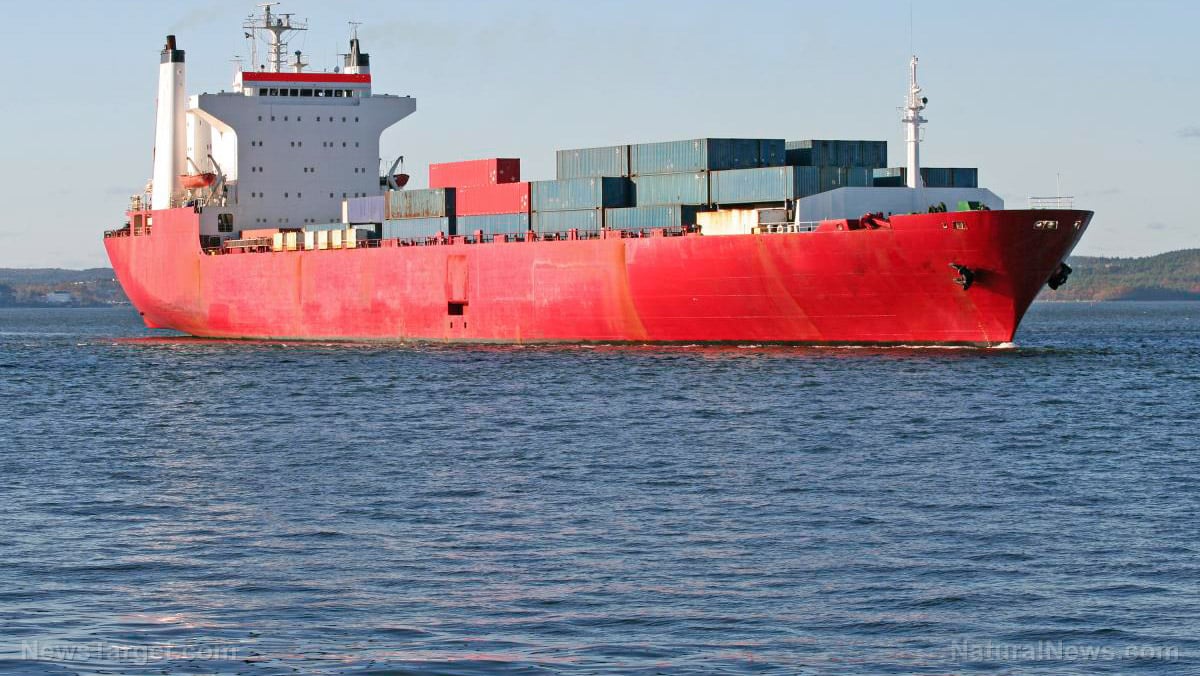(Natural News)
As congestion continues to be a major problem at the ports of Los Angeles and Long Beach, shippers are now expressing concerns about a surprise emergency fee that has been imposed on containers that stay at terminals for too long – and they say the fallout could be catastrophic.
In a bid to clear docks and make space for containers that are stuck on ships offshore, the ports announced earlier this week that they will start charging $100 per container for boxes that have been sitting for 9 days or longer for those that are moved by truck, while the fee will kick in for those that move by rail at the six-day point. Moreover, these fees will rise by increments of $100 for each additional day they are delayed. This means that the cumulative charge per container per day would reach $46,500 by day 30.
The fee will be charged to carriers, who are expected to pass it along to shippers. The global container lead at Cargill, Daniel Miller, called the charges “crazy fees” and said that several carriers have admitted that the charges will be passed along to shippers.
Gemini Shippers Group President Ken O’Brien said that the fee amounts to an indirect tax on American consumers.
The move prompted the vice president of Mohawk Global Logistics, Rich Roche to say: “As far as the ‘hyper-demurrage’ announced in Los Angeles/Long Beach, I think it will be catastrophic.”
Meanwhile, Mallory Alexander International Logistics Executive Vice President of Global Transportation Bob Connor said that the fee is “the last thing we need.” Roche and Connor are hopeful that someone in the government will intervene.
The Motor Equipment and Manufacturing Association’s Steve Hughes says that although he understands the reasons for the fee, he does not believe it is a good solution. He said: “I’m concerned that this new fee is going to cause even more problems than it’s going to solve. I understand the logic behind it and it makes some sense, but unfortunately, because we don’t have the throughput at the front gate, I think this can cause us more problems than we have already.”
Uncertainty over efficacy of new fee
The fee was established to try to help unclog the terminals and encourage containers to move faster through the port. However, NSAC members argued that the emergency fees will not increase container velocity because of the current state of affairs in the supply chain. They say that nobody is leaving their containers in the port intentionally; the problem is that they are physically unable to move them out.
The director of global imports for Amazon, Adnan Qadri, said that although detention and demurrage may have been used in the past to incentivize faster turns, it simply cannot have that effect at the moment and is not going to drive any sort of positive behavior.
Although these kinds of fees have come under fire in the past year and are the subject of proposed legislation to reform the Ocean Shipping act as well as FMC regulations, the ports’ plan has gained the explicit blessing of the Biden administration. Meanwhile, the freight logjam continues to get worse, dampening hopes of economic recovery and threatening Americans’ holiday shopping plans.
In a post online, HMM Midwest Region Vice President Stephen Nothdurft wrote: “It’s ironic that the international community has been pleading to the government about the absurdity of demurrage/detention charges only to have said government administer more of the same.”
According to Goldman Sachs economists, more than 30 million tons of cargo are sitting on vessels that are idling outside of U.S. ports in congestion that may not ease until the second half of next year, contributing to ongoing inflation.
Sources for this article include:






